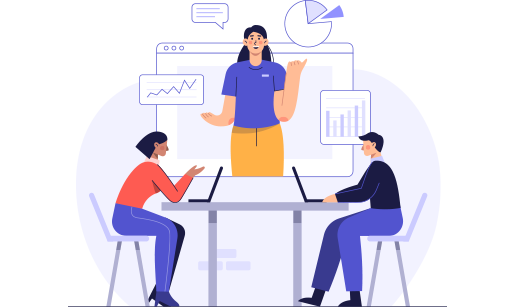Upcoming Data Science Professional Tranings
| Training | DATES | Times | Duration | Location | |
|---|---|---|---|---|---|
| Classroom | Per Request (Bootcamp) | 9:00AM To 1:00PM (GMT) | 35 Hours | Accra |
OVERVIEW
Data science has created a widespread impact across various sectors. In areas like healthcare, education, security, sports, energy, and science, the application of data science has created a lot of opportunities for innovation and improvement. Scientific studies rely on data sets to measure and analyze scientific goals, for example, healthcare recommendations, identifying and predicting diseases, personalized healthcare support via AI and machine learning, etc.
The Certified Ghana data science syllabus includes a comprehensive curriculum, which is designed on the basis of what most industries want from data science professionals. The data science syllabus is suitable for beginners, working professionals, or someone who wants to switch over to a career in data science.
COURSE OUTLINE
1. Introduction to Data Science1.1 Introduction to Data
1.2 Exploring Data
1.3 Data Analysis Fundamentals
1.4 Machine Learning Basics
2. Analyzing and Visualizing Data with Power BI / Excel
2.1 Transforming Data using Power BI Desktop
2.2 Power BI desktop modelling
2.3 Power BI Desktop visualization
2.4 Working with Power BI service
2.5 Viewing Power BI Dashboard
3. Ethics and Law in Data and Analytics
3.1 Data’s Ethical Foundations
3.2 Data’s Legal Foundations
3.3 Ethical Data Practice
3.4 Data Bias
3.5 Business and Ethical Data Use
4. Querying Data with SQL
4.1 Introduction to Transact – SQL
4.2 Querying Tables with SELECT
4.3 Querying multiple Tables with Joins
4.4 Using functions and Aggregating Data
4.5 Using subqueries and APPLY
4.6 Using Table and Expressions
4.7 Grouping sets and Pivoting Data
4.8 Programming with Transact-SQL
5. Introduction to Python for Data Science
5.1 Python Basics: Hello Python, Variables & Data Types
5.2 Data Structures: Python Lists & Manipulating Lists
5.3 Functions & Packages
5.4 Numpy: 2D Numpy Arrays, Basic Statistics with Numpy
5.5 Matplotlib: Basic plots with matplotlib, Histograms, Customization
5.6 Pandas: Boolean Logic & Control Flow, manipulating Data with Pandas
6. Principles of Machine Learning: Python
6.1 Intro: Data Science Process, Overview of Machine Learning (Supervised &
Unsupervised Learning)
6.2 Exploring Data: Exploratory Data Analysis for Regression & Classification
6.3 Data Preparation & Cleaning, Feature Engineering
6.4 Detail work with Regression & Classification
6.5 Improving Model Performance: Techniques & Model improvement,
Dimensionality Reduction
6.6 ML Algorithms: Decision Tree, Ensemble Methods, Neural Networks, SVM,
Bays Theorem, Random Forest, KNN
6.7 Unsupervised Learning: Clustering
7. Developing Big Data Solutions with Azure Machine Learning
7.1 Introduction to Azure Machine Learning Studio
7.2 Working with Data Sources
7.3 Building Predictive Models with Azure Machine Learning
7.4 Azure web services
7.5 Using Azure Machine Learning in Big Data Solutions
8. Capstone Project
BENEFIT
You will learn how to:
- Capture: Data Acquisition, Data Entry, Signal Reception, Data Extraction. This stage involves gathering raw structured and unstructured data.
- Maintain: Data Warehousing, Data Cleansing, Data Staging, Data Processing, Data Architecture. This stage covers taking the raw data and putting it in a form that can be used.
- Process: Data Mining, Clustering/Classification, Data Modeling, Data Summarization. Data scientists take the prepared data and examine its patterns, ranges, and biases to determine how useful it will be in predictive analysis.
- Analyze: Exploratory/Confirmatory, Predictive Analysis, Regression, Text Mining, Qualitative Analysis. Here is the real meat of the lifecycle. This stage involves performing the various analyses on the data.
- Communicate: Data Reporting, Data Visualization, Business Intelligence, Decision Making. In this final step, analysts prepare the analyses in easily readable forms such as charts, graphs, and reports.
WHO SHOULD ATTEND
The data science syllabus is suitable for beginners, working professionals, or someone who wants to switch over to a career in data science.
EXAM
TRAINER
<
<
GALLERY
FAQ's
Choose CertifiedGhana in your journey


